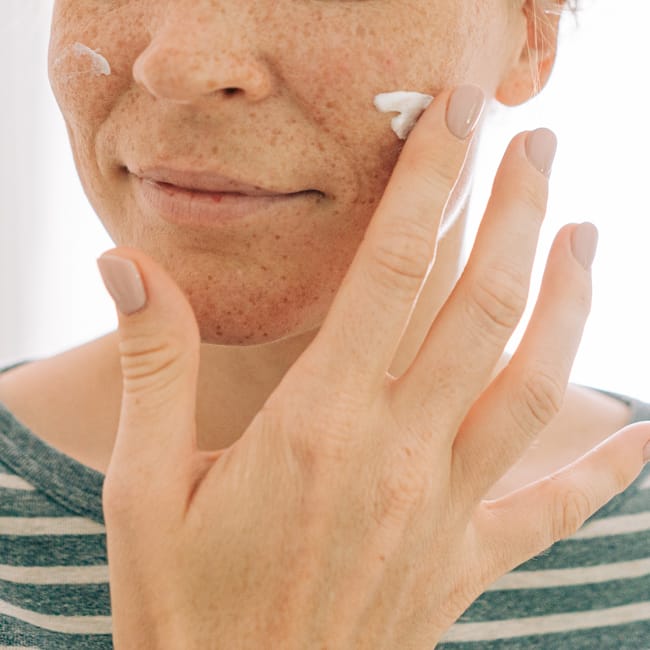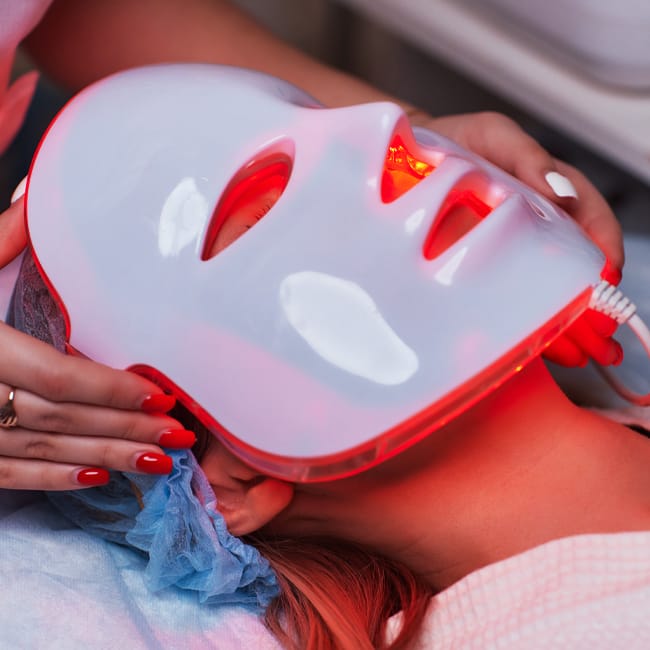When done one to two times per week, exfoliating your skin can improve the appearance of your complexion significantly. This step can brighten your skin by removing dead skin cells and smoothing its surface. The drawback of over-exfoliating, however, is that you could be stripping your skin of its natural oils, which can cause damage and speed up the process of aging.
We spoke with holistic skin therapist Ayanna Denise about 3 common cosmetic procedures that can over-exfoliate your skin (and ultimately lead your skin to be extremely sensitive and more susceptible to harm from the sun ray’s, among other things).


Dermaplaning, Chemical Peels & Microdermabrasion
Denise notes 3 specific cosmetic procedures that she doesn't think are worth paying for or enduring— "dermaplaning, chemical peels and microdermabrasion."
"These procedures prematurely remove skin cells, leaving your dermal barrier compromised and extremely sensitive to pollutants, toxins, sun rays, and alcohol," says Denise.
The first, dermaplaning, is a process that involves removing the top layers of your skin. This procedure aims to remove fine wrinkles and deep acne scarring while smoothing your face in the process. Some downsides of dermaplaning include its range of common side effects, from breakouts to risk of infection to redness and discoloration to irritation.
The procedure can also be quite costly, especially for a process that only affects the top layers of your skin, as isn't as intensive or able to create much of an improvement as you might expect.
Denise adds that if you're over-exfoliating with the help of procedures like this, "skin cells are prematurely" being worn off the surface when the skin cell cycle should be "between four and six weeks," she says.

The second procedure Denise urges people to think over is using chemical peels. This procedure is often dubbed a good alternative to surgery, but when it comes to intensive anti-aging options like this, there are always risks to look out for.
Denise says that again the risk of over-exfoliating is enough to be wary of this procedure (one that involves applying a chemical to the skin to make it blister and eventually peel off).
Some cons when it comes to chemical peels include that this process can cause uneven skin pigmentation, it can make skin itchy and sore, and ultimately, it just doesn't work for every skin type.
For people with deep set, significant wrinkles, or severe lines on the forehead, chemical peels are unlikely to help you look younger since they're only designed to remove the top layer of your skin and can't firm skin to a greater degree. This is why spending money on this process only seems to be worth it if your skin type is the opposite.

Lastly, Denise says to rethink microdermabrasion, the procedure that uses a special applicator with an abrasive surface to sand away the thick outer layer of the skin (in the hopes of rejuvenating it). This procedure, like the other two, wouldn't be covered by medical insurance and may not be worth its costs.
Some cons of microdermabrasion include tenderness, swelling, redness, dry, flaky skin and minor bruising caused by the suction process during the treatment.
The main reason why this might not be worth your money is because, it too, affects the top layers of your skin and can't change the effects that major wrinkles have on your appearance. (Surgeries like facelifts and Botox can help with more noticeable differences).
Whether you undergo these procedures or choose not to, Denise explains how important it is to connect with your skin and tend to its immediate needs first and foremost, before even thinking about treatments or surgery solely related to its appearance. "Be patient with your skin when it comes to healing, she says.
"When provided with proper nutrients, water, and rest, skin cells turn over between 2-6 weeks, and new cells reveal rejuvenated skin."
Overall, none of these procedures are scarily harmful, but the idea of over-exfoliating your skin when expecting instant anti-aging results can be.
Some procedures best benefit specific skin types, which is why it's vital to do your research on your own skin type and needs by visiting a dermatologist, and reading up on the details behind treatments you might be considering.
Financially, procedures that won't give you the change you're looking for or that won't help your skin health in the way you need, ultimately aren't worth it.


























